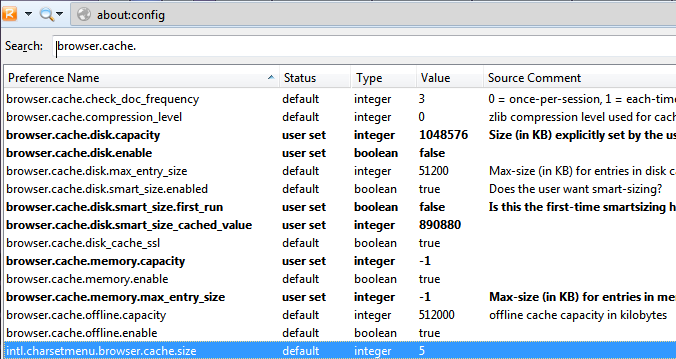I've been following this discussion thread with interest but without so far being able to contribute much that I thought could be of real use/help to it, until, perhaps, this last couple of weeks.
The subject could perhaps be more accurately restated as a general
"Making greater use of available RAM for efficiency and performance iprovement", rather than just focussing on one approach to doing this - ie.,
RAMdisk.
The main advantage of a RAMdisk (or RAMdrive) is performance improvement. Though I had used memory optimisers and the IBM DOS RAMdisk in laptops since years ago, I have trialled them but not really used them (seemed too kludgy or flaky or of no real advantage) in later Windows GUI operating systems. In DOS they certainly did have a
noticeable effect on performance, largely because they could reduce latency by reducing the HDD read/write activity in HDD TEMP and paging operations, and they also took advantage of any unused "upper memory". So, I knew that RAM drives
could offer real potential performance benefits under
some circumstances.
For some time I have coincidentally been trialling potential performance-improving tweaks - hardware/software.
The single most significant performance improvement achieved so far in this (and which I posted about in detail in the DC Forum as
Test: Does latency reduction via RAM upgrade lift software performance?) came about after bumping up the DDR3 RAM to the max 8Gb (on available slots) on two laptops.
Suffice it to say that the performance improvement was significant in terms of raising the WEI (Windows Experience Index)
"Memory operations per second" subscore, but not the overall
Base Score (which is determined by the lowest subscore).
However, from a user perspective
..."everything seems to run faster"...I have also now turned on (previously turned off most) all the settings for max graphics quality - on both laptops - which, theoretically should place extra load on the CPUs. However, the user experience is that display quality/resolution has improved and there has been no perceptible waiting/latency from any processes.
Thus, as a general rule, anything you can do to push operations requiring physical HDD activity into RAM are going to reduce latency and enable an improved real speed of operation from the user perspective.The laptops are:
- a DELL Inspiron with an AMD Phenom II X3 N850 (triple-core) CPU and a 5,400RPM HDD, OS Win7-64 Home Premium.
- an HP ENVY 14 with an Intel i7 (4x2=8-core) CPU and a 7,200rpm HDD, OS Win7-64 Home Premium.
With all that extra RAM, I have been trying to apply the above general rule by seeing what other operations I can push into RAM - for example, having the Firefox cache in RAM:
So much opinion! So, in the absence of facts, I take a
suck-it-and-see approach. My HP ENVY's Firefox
about:config thus currently has been (and is still being) tweaked to something similar to these
trial settings for RAM/disk caching utlilisation: (caveat - might not suit everybody's needs though)

Also, over the last couple of weeks, what I have been doing (in piecemeal fashion, because it is "when I have the time") is trialling the standard
Windows ReadyBoost facility in Win7. This was prompted by my reading
@Stephen66515's very informative post (displaying most of the Windows Help file details on ReadyBoost):
Using memory in your storage device to speed up your computer.
There are several other posts in the DC Forum referring to the ReadyBoost Windows feature.
Whilst I have so far made no
objective measures of the effects of using ReadyBoost, I can report that it certainly seems to work as it should, and that it seems to provide some latency reduction, though I do not yet understand how to make the most of this. Presumably the max read/write speed of the USB RAM ("memory stick" or whatever you might call it) is a constraint, and so measuring that would seem to be useful.
Gaining a better understanding of the constraints/limitations should enable me to better understand how to take best advantage of any ReadyBoost potential benefits.
NB: Whilst one of the potential disadvantages of a RAMdisk or RAM caching might be (for some) the loss of the RAM-based contents on power-down (Shutdown), it is not necessarily so relevant for laptop users who keep the laptop in "Sleep mode" most of the time when not using it, rather than Shutdown. Also, for those that might want it, there will probably be ways to make a backup HDD copy of files in a RAM disk/cache - if necessary - before terminating the process or before Shutdown. (Though I haven't played around with this yet.)


 Recent Posts
Recent Posts




